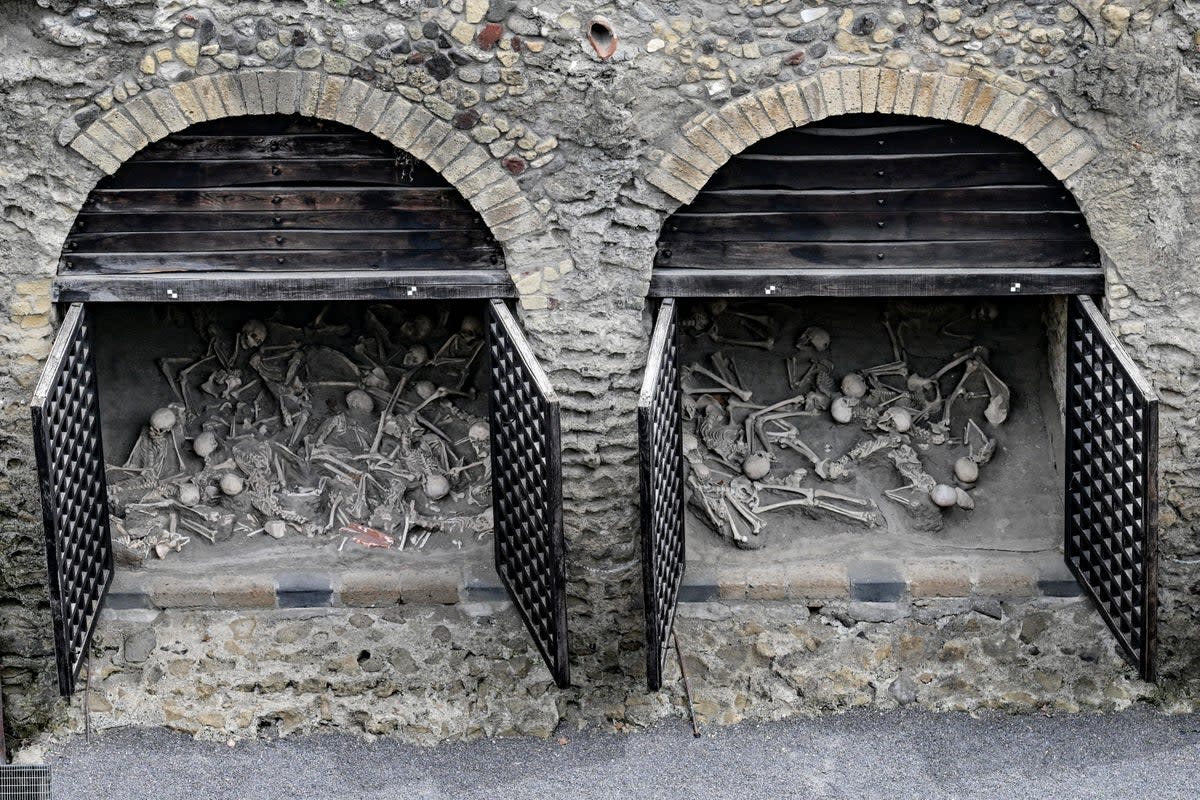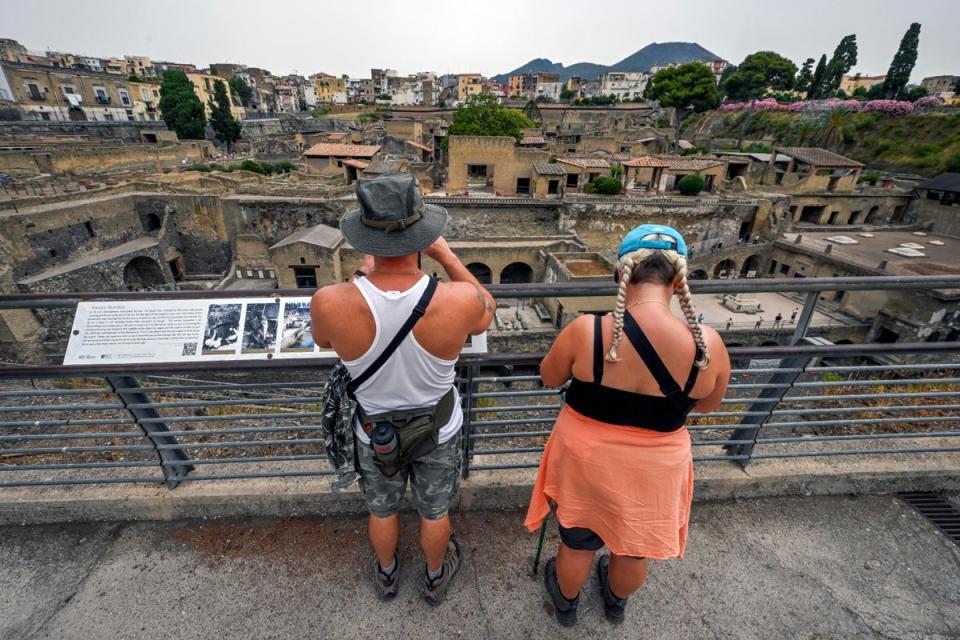Ancient Roman beach buried by Mount Vesuvius eruption reopens to public

An ancient Roman beach buried nearly 2,000 years ago due to the eruption of Mount Vesuvius has opened to the public in Italy after the completion of conservation work.
The busy city of Pompeii and the upmarket resort town of Herculaneum were smothered by a three-metre blanket of volcanic ash and pumice from the eruption in AD79. Many people were crushed or trapped in the dwellings and temples where they took refuge. The following morning, a cloud of hot gas and ash swept in to suffocate the survivors.
Many centuries later, the horrible reality was painstakingly unwrapped by archaeologists who restored the beach at the Herculaneum archaeological park by the Gulf of Naples, giving visitors an experience of the town before the natural disaster struck, according to The Guardian. Herculaneum is located in modern-day Campania, Italy.
It is believed to be the site where more than 300 people tried to shelter themselves as they awaited evacuation by the army of Pliny the Elder, the Roman naval commander.
The beach, which was discovered during 1980 and 90s, when skeletons of the inhabitants and other evidence of eruption were found during excavation, was reopened on Wednesday after years of restoration of work.

"It was not only a restoration work but also a great research work because we know that representing a site, in an open-air archaeological place, also means being able to delve into scientific aspects: we carried out excavations and found remains and the passage of pyroclastic flows that hit the city in 79AD with materials of all kinds," said Francesco Sirano, the director of the Herculaneum archaeological park.
The most important discovery was of the “last fugitive” in 2021 – a 40-year-old man, trying to escape towards the sea with precious objects, reported ABC and NBC News affiliate KSBW.

"Herculaneum, Pompeii, Oplontis: we are working on many projects", the Italian Minister of Culture Gennaro Sangiuliano, was quoted as saying by the outlet.
"In the budget law we have refinanced the excavations and there are construction sites that are active like never before and are revealing new treasures, which fuel the activity of scholars."
The minister said the restoration of this archaeological area “will represent a opportunity for socio-economic development”.

 Yahoo News
Yahoo News 
